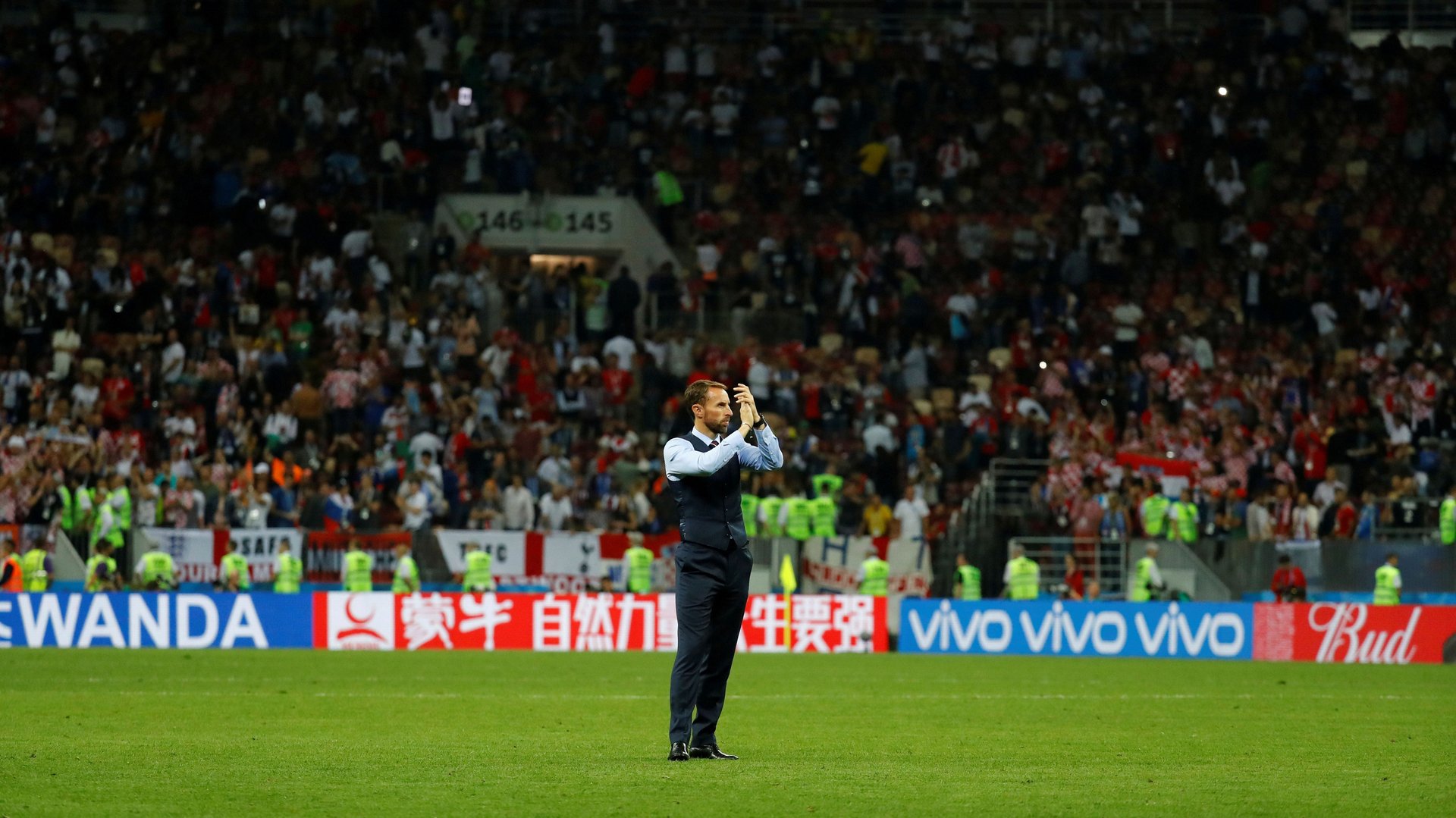The real winners of the World Cup and Wimbledon are not obsessed with winning
As a kid playing sports at school, I was a frequent recipient of the “sportsmanship award.” I only understood years later why this used to make my dad crack up—that receiving a trophy for sportsmanship was essentially an acknowledgement that while you weren’t exactly a gifted athlete (or even kind of sucked), you had a generally good attitude and probably shared your snacks.


As a kid playing sports at school, I was a frequent recipient of the “sportsmanship award.” I only understood years later why this used to make my dad crack up—that receiving a trophy for sportsmanship was essentially an acknowledgement that while you weren’t exactly a gifted athlete (or even kind of sucked), you had a generally good attitude and probably shared your snacks.
This was my status on pretty much every team of my athletic career: primary school soccer, middle school basketball, high school tennis and swimming. All those years of after-school practice didn’t make me a great athlete, but now I see there was real value in that sportsmanship—and in enduring the humiliation of being bad at sports. Seriously.
Was it mildly horrifying, at age 15, to be literally the slowest swimmer on the team? Of course it was! But learning to love swim practice despite that—or at least, getting through it—didn’t just teach me that it’s fine to swim in the slow lane, as I sometimes do today at my public pool. It also fortified me for the challenge of taking up surfing in my 30s—an endeavor that has been humbling, frightening, and sometimes physically painful. But also: fun.
As a kid, the abundant clarity that I would never be the MVP freed me from any obsession with winning. Had it been of utmost importance, I would have quit before I started, or been miserable throughout the season. Oddly, a similar shift of focus seems to be a key—and even a path to victory—for some of the world’s greatest athletes too.
England’s World Cup footballers, who will play against Belgium today for third place, emerged as the dark horse of this year’s tournament. The Guardian’s Emine Saner noted how coach Gareth Southgate and team psychologist Pippa Grange worked closely with the team to lighten the players’ fear of failure.
“Where once it was stuffed with entitled, surly stars, burdened with the weight of history and the pressure of expectations,” wrote Saner, “it now comes across as a hungry, humble team, playing with lightness and joy.”
Serena Williams, on her way to the women’s singles final today at Wimbledon, appears to have taken a page from the same playbook.
“I don’t have anything to lose, and I feel I can play so free,” said Williams, after beating Julia Görges on Thursday in just an hour and ten minutes, 10 months after giving birth via a harrowing emergency C-section. “That’s what I’m doing … I’m enjoying every moment.”
That sort of perspective has historically helped Williams maintain focus, even when she’s not winning, writes Quartz’s Ephrat Livni.
“If you are behind in a game, it’s so important to relax, and that’s what I do–when I’m behind in a game, that’s when I become most relaxed,” Williams told Sports Illustrated in 2015. “Just focus on one point at a time…just that sole point, and then the next one, and the next one.”
Like most things that are worthwhile (learning a new language, falling in love), challenging oneself in sports carries a high risk of failure. But ultimately it can open your world to people, places, ideas, and just plain joy that you might not have otherwise experienced.
And who knows? You might even find something you’re good at.